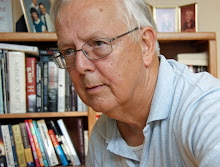 At about the same time we in the United States were celebrating the birth of our nation, very different events were taking place in Southeast Asia. Our decade-long war in Vietnam came to a dramatic close in 1975, leaving over 58,000 Americans and over one million Vietnamese dead.
At about the same time we in the United States were celebrating the birth of our nation, very different events were taking place in Southeast Asia. Our decade-long war in Vietnam came to a dramatic close in 1975, leaving over 58,000 Americans and over one million Vietnamese dead.One aspect of that tragic war included the secret bombing of neutral Cambodia, intended to deny the communists sanctuary from American forces. The bombings couldn't remain secret for long, and the killing of non-combatant Cambodians fueled increasing outrage around the world and here at home.
With the departure of the Americans came the collapse of both South Vietnam and Cambodia. The destruction and chaos spilling over from Vietnam left an opening for the small, tightly-knit Khmer Rouge (Red Cambodians) to take over, and they did so with a vengeance seldom seen. They emptied the cities, sent everyone to the countryside, butchering vast numbers of their own countrymen along the way. The Khmer Rouge renamed their country Kampuchea and declared it to be a completely agrarian society, killing all professionals and people with any culture or education. In 1975 they closed off the country to all outsiders and put their people to work in slave camps, creating a terror lasting until about 1979, when the Vietnamese invaded. In the meantime, an unknown number of Cambodians died--a million, two million--probably no one knows for sure. Survivors began flocking to the safety of refugee camps in Thailand, and some of them were allowed to come to countries such as France and the United States.
This is some of the back story to my third novel, Little Mountain. Future blog posts will describe some of the experiences of Cambodians in America as well as my own experiences with them. To read more about the book, go to the Little Mountain tab at the top of this page.

















3 comments:
Congrats on the latest book. Will return to read your latest posts :-)
This is fascinating (and horrifying, but the kind of horrifying it seems important to know). I was in elementary school during this, and my knowledge of all of this is scant at best. I look forward to learning more.
Congratulations! Definitely something I'm interested in.
Post a Comment